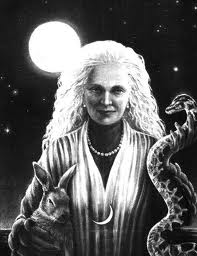‘Then she waited, with parted lips and a saucy challenge in her eyes, to see how her presence – the drama of being her – was registering. In the way of such chicks, she seemed convinced of the originality of her provocation. Katz had encountered, practically verbatim, the same provocation a hundred times before, which put him in the ridiculous position now of feeling bad for being unable to pretend to be provoked: of pitying Lucy’s doughty little ego, its flotation on a sea of aging-female insecurity.’
Due to all the stagy point of view switches the novel apparently employs, I’d thought of assigning it to students, but after reading the above passage I was like, not in 100 fucking years. The cruelty and hubris of Franzen’s depiction of the woman—a reviewer points out that Katz is the character who seems closest to Franzen himself—is astonishing. Middle aged women are such easy prey, like they’re supposed to walk around with eyes averted, hanging their heads in shame at their wreckage.
Here’s an sappy image of a crone to wipe out the evil Franzen-view. She looks complete, does she not, with her moon and bunny and snake. When you’ve got such cute animals to pleasure you, who needs men? When I talk with “aging-females—meaning straight women, not miraculous lesbians—some of them seem to welcome being outside that gaze. Some of them have no interest in attracting men, and from that they feel powerful, freed up to direct libidinal energies into other pursuits. I’ve felt that myself, no desire for men equals feeling centered and powerful Dodie—and no matter what men I interacted with, I felt in control.
I recently, despite all intentions to never do that again, got involved with a straight guy. At first it was great, but the power dynamics gradually switched, until I ended up being treated like a petulant child. At one point he told me not to hint for what I wanted, to just say it—and since that’s something Kevin has also asked me to do, I figured he had a point—so I did start to ask for what I wanted, very directly. Much of the time he’d simply say no—no explanation, just no—or he’d offer something flippant. And when I said these blunt nos weren’t going down well, my behavior was called “peremptory and monarchical.” The more he’d treat me like a child, the more childish I became—until one day rage came welling in and this rage gave me Crone Vision: this is fucked up! And off I went, back to my animals and Kevin and the delightful queerness of my writing/art world.
FUCK YOU JONATHAN FRANZEN!!”




